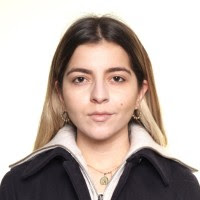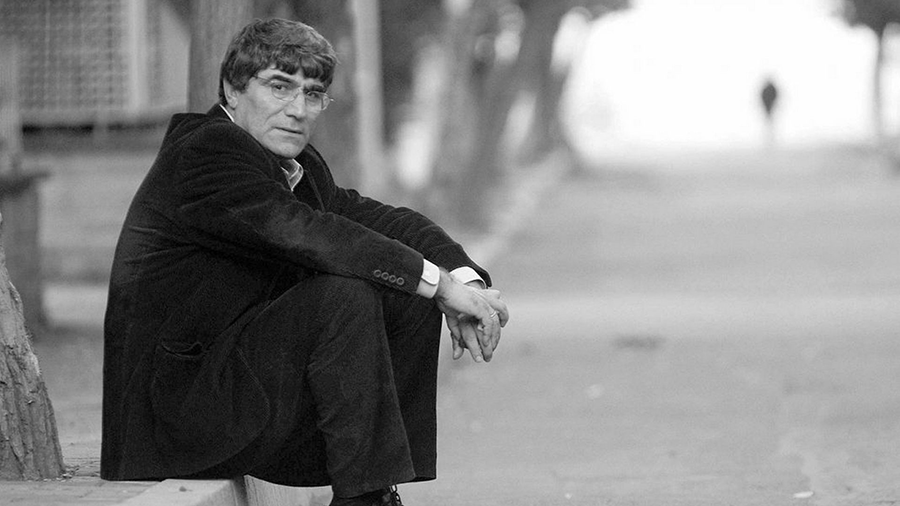by Laura Avetisyan
Hrant Dink, a prolific Armenian-Turkish journalist, activist and advocate for human rights and democracy, was shot to death in Istanbul on January 19, 2007. Hrant’s assassination sent aftershocks through Turkey, Armenia and beyond. Videos reposted on social media on the anniversary of the assassination in January 2024 ignited a new spark in me towards rediscovering Hrant, especially in the context of Armenia’s defeat in the 2020 second Karabakh war, and the ultimate loss of Karabakh in September 2023.
Disillusioned by the ever-victorious national narratives reigning over the Armenian republic, since its inception in the 1990s, Armenians are now struggling to redefine themselves. Unfortunately, no viable alternatives have yet appeared to replace the old narratives, people are yet again served rigid and extreme interpretations of what it means to be Armenian. Hrant was a rare thinker who believed in a version of Armenianness that didn’t have to be rigid, an Armenianness which was in touch with history but also in tune with the present; a creative and pragmatic leader, unafraid to grapple with the challenges of the time.
Read also
Hrant was a creative thinker, when it came to our identity and our cause, which our modern-day Armenian social and political life hopelessly lacks. Our pre-2020 idea of the national self was rigid — an ethnonational state, tied strongly to the Armenian church and anchored around the unity of Armenia, Artsakh and Diaspora. This conceptualization of the self was inflexible at its core, exclusive of those positioned outside of these bounds. Nowadays, we see extreme departures from the old narratives, without offering sustainable alternatives. Whilst the church held a central role in the past, now we see an active distancing away from the church. Regular standoffs between church and state representatives, refusals to attend religious events have become commonplace.
We are also seeing a sharp move away from Artsakh, the idea and the reality of it. Whilst these moves are justified as negotiating steps in protection of Armenia, ideationally they create a cumbersome vacuum. For the past few years we have also seen a reshuffling of the idea of diaspora — starting from dismantlement of the diaspora ministry to the weakening of ties with key diaspora institutions. Whilst heavily criticized by multiple layers of the society, these acts are not inherently wrong. However, they do come in stark contrast to and rejection of the past, unsubstantiated and without an alternative.

Laura Avetisyan
Hrant was creative about our identity. In 1996, when Hrant founded Agos, the Turkish-Armenian community already had two other Armenian publications, Marmara and Jamanak. However, unlike Marmara and Jamanak, Agos decided to publish in Turkish, with only a two-page Armenian section. From an Armenian perspective, the decision to publish in Turkish, raised immediate alarm bells. “Why run an Armenian paper in Turkish? Why write about us in the language of a hostile nation? Why not instead write in Armenian and strengthen the diminishing role of our language and culture in Turkey?” However, Hrant thought differently. By writing in Turkish, Agos adopted a clear mission: to make the Armenian voice in Turkey heard in Turkish.
As Eydin Engin, a Turkish journalist and playwright put it; “Until Hrant, Turkish Armenians were a community which didn’t speak — they would only whisper. Hrant came and loudly started talking and announced that in 1915 there was an Armenian genocide. Hrant was killed because he was speaking up, and in a language that people understood.”
In an interview with SBS Armenian, Hrant explained that at a time when Armenians were misrepresented and attacked in Turkey, he felt “we had to protect ourselves in the language in which we were targeted wrongfully, and in the language in which the taking away of our rights was legitimized.”
Hrant was open-minded about the Armenian identity, unlike modern-day rigid conceptualizations of what Armenians are. He was aware of the multitudes existing amongst us. In fact, when explaining his decision to publish Agos in Turkish, he said, “We were forced to publish in Turkish because our own community had to be reached out to in Turkish.”
He expressed that, unfortunately, many Armenians had lost touch with the Armenian language in Turkey and had been Islamized. Hrant was of the opinion that estimated millions of Armenians in Turkey no longer spoke Armenian or kept in touch with the Armenian culture or the Armenian church. From the point of rigid Armenian identity, tied to our language and church, even the idea that an unknown number of Armenians might exist out of touch with the Armenian language and the Armenian church, might be a hard pill to swallow. Hrant, however, was brave enough to talk about the existence of Armenians, who did not fit within the traditional bounds of what it means to be Armenian, publicly.
After the victory in the first Karabakh war in 1994, amidst the euphoric wave of Armenian independence, the nascent Armenian identity became anchored in the idea of victory. The defeat in the second Karabakh war in 2020 came to shake the Armenian psyche to its core. Naturally, the defeat did not fit within the victorious narrative of the self. Were we winners or losers? These are weighty topics for a nation to find its bearings around. Initially, tying the nation’s identity to a victory, which itself was founded on loose grounds, laid a dangerous foundation for the future. However, it is equally dangerous to witness the adoption of a loser’s mentality. Many concessions to our identity today are rationalized from the point of view of the losing side. Whilst wars shake nations and leave large imprints, it is too simplistic to encourage a victory or defeat to overwhelm the formation of identity.
Not only is the identity of a loser and winner not in Hrant’s style since it is binary, but also it compromises the idea that we have a greater core, irrespective of position in the balance of power. It makes us forget that we have a set of values and ideas that are worth respecting and fighting for, regardless. Hrant was always fighting an unequal battle, where he was in a significantly weaker position than his opponents. He continuously faced a large traffic of opposition ranging from slurs to consistent death threats and prosecution. Yet, he never gave up. In answer to questions probing how he managed to continue the struggle and fight for the rights of Armenians in Turkey, Hrant once calmly answered, “We got used to the battle, we got used to being a demanding citizen.”
Even in 2006, amidst trials based on fabricated charges for having offended Turkishness as per the Turkish Criminal Code’s Article 301, Hrant carried on his work and made regular public appearances. He was committed to his cause, and knew that despite the conditions, he had to continue.
Armenians are also currently struggling to fit in the regional neighborhood. In the pre-2020 identity, Armenia was largely isolated from the neighborhood, and mostly didn’t seem to have much interest in getting to know its neighbors with the exception of a brief normalization period with Turkey in 2009. However, Hrant, unfashionably so for his time, encouraged Armenians to reconcile. He said; “I have a strong belief in dialogue, let people forgive me…our country is in such a location that we have no other way than to speak to our neighbors.”
Hrant also encouraged Armenians to pay closer attention to the nuances of modern Turkish society, inviting people to understand each other better. He strongly advocated for Armenians and Turks to try and make room to know each other and created that space himself through Agos. Nonetheless, as an Armenian activist operating out of Turkey, Hrant kept an impressive degree of firmness in advocating for acknowledgment of the truth behind the fate of the Armenians in Ottoman Turkey. He always spoke of the Armenian Genocide with clarity and precision.
The issue of coming to terms with the reality of being a small nation in a hostile region often presents a wider issue of decision-making between wishful idealism and objective pragmatism. However, Hrant proved to us that we need not keep these ideas in opposition — we can open up to our surroundings while retaining our core values.
Hrant thought outside the box, targeting communities which had not been addressed before, fighting for a cause that had been lingering for too long. He was creative in adopting an unorthodox approach to advocate for us, Armenians, in a language which was antagonizing us. To the great horror of many, even despite his balanced stance, Hrant was still viewed as an enemy by the Turkish power centers and was eventually assassinated.
The Armenian intellectual space now seems to be void of pragmatic fighters; we either have attempts to shrink the Armenian identity as we know it, or unrealistic and maximalist chants of even more inflated alternatives.
Lastly, Hrant taught us to dream. On this path of despair, we have also sunk deep into apathy and fail to see a better future. Hrant’s ideas for peace and reconciliation in the region between Armenia and Turkey seemed unattainable, however, the difficulty of the task did not stop him from harboring hopes and passionately advocating for them. Today, when peace in the region and our national identity are still in crisis, we ought to get inspired by leaders like Hrant Dink, tap into our inner Hrants, dream and continue fighting.
(Laura Avetisyan is a London-based researcher and writer, with a bachelor’s degree in Politics, Sociology and East European Studies from University College London. She primarily focuses on the geopolitics of Armenia and the wider region.)Art



























































